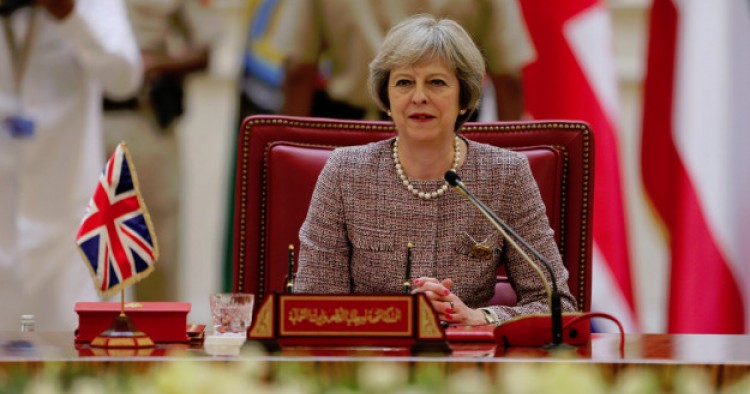British Prime Minister Theresa May’s reiteration while visiting the United States that Iran’s “malign influence” in the Middle East has to be countered has generated swift angry reaction in Tehran. May told a group of Republican lawmakers at a convention in Philadelphia that “while the [2015] nuclear agreement which Iran signed with world powers has to be respected, Iran’s malign influence in the Middle East has to be watched.”
Iranian media reported May to have stated that the fight against the Islamic State is one part of Britain’s policy objectives in the Middle East. The other part is to stop Iranian interventions in the region that has seen Tehran’s influence reach from Tehran to the Mediterranean. May also again emphasized that London will stand by its partners in the Gulf Cooperation Council (GCC) to resist Iran’s regional ambitions.
While May’s urging that the nuclear deal to be upheld under President Trump received plenty of implicit approval in Iran, her reference to London’s common cause with the Gulf Arab states to confront Iran was attacked in Tehran. Since her remarks at the GCC summit in Bahrain in December 2016, where she spoke forcefully against Iran, officials in Tehran have sought to depict May as seeking to gain economic favors with the GCC states in return for a tougher British line against Iran.
The Middle East Institute (MEI) is an independent, non-partisan, non-for-profit, educational organization. It does not engage in advocacy and its scholars’ opinions are their own. MEI welcomes financial donations, but retains sole editorial control over its work and its publications reflect only the authors’ views. For a listing of MEI donors, please click here.













